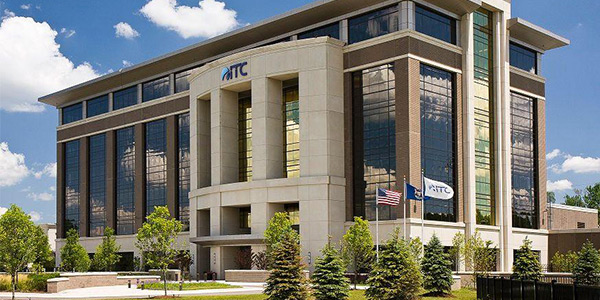By Tom Kleckner
FERC last week denied Kansas Electric Power Cooperative’s complaint that Westar Energy had twice violated its generation formula rate (GFR) in assessing its own rates and federal income tax reduction (EL19-17).
In its Federal Power Act Section 206 complaint, KEPCo alleged that Westar failed to reflect the reduction in the federal corporate income tax rate that went into effect on Jan. 1, 2018, in the utility’s rates paid and calculated under the GFR. KEPCo also asserted that Westar improperly included about $551,000 associated with Westar’s settlement of a personal injury lawsuit in the GFR’s annual update in 2018.
The complaint filed last November included a list of informal challenges to the 2018 update. It maintained Westar should have corrected the overstated tax expense from Jan. 1 to May 31, 2018, as a mistake, charging that the company used the improper corporate tax rate for the 2018/19 contract year.
The co-op asked the commission to order Westar to recalculate the GFR, exclude the settlement’s $551,000 from the 2018 update and provide refunds with interest.
Westar responded by saying that it believed all charges in the 2018 update were appropriate. Westar asserted that KEPCo failed to demonstrate how the GFR as a whole is unjust and unreasonable.
FERC found that Wester correctly applied its historical test year methodology in the 2018 update, applying a 35% federal corporate tax rate in calculating the GFR from Jan. 1, 2018, through May 31, 2019. The commission pointed out the update was properly based on 2017 costs, including the 35% tax rate in effect in 2017.
The commission relied on precedent set in a recent decision in which Duke Energy also had a cost-based tariff that followed a historical test year methodology and applied the 35% tax rate in its 2018 annual update. FERC dismissed a wholesale transmission customer’s attempt to apply a lower income tax rate because it found the utility “correctly used the federal corporate income tax rate in effect in 2017 in preparing the 2018 annual update.”
In that proceeding, the commission said it “generally requires that formula rate inputs be calculated on a synchronized basis over the same test period … [using] the federal corporate income tax rate in effect during the historical test year period, absent a contrary statement in the filed rate.”
“No such contrary statement exists in Westar’s GFR,” the commission said.
FERC said KEPCo provided little support for its argument that the GFR’s tax component is an exception to the historical test year approach. “The lack of an explicit requirement in Westar’s GFR one way or the other on the correct federal corporate income tax rate favors use of the prior year rate, consistent with the historical test year methodology,” the commission said.
FERC made a similar decision last week in case involving a Louisiana city’s complaint against Cleco Power. (See related story, FERC Backs Cleco on Tax Rate Calculations.)
The commission did not address Westar’s inclusion of “certain expenses in the injuries and damages account,” as KEPCo withdrew its challenge.
Commission Denies Reduction of ITC Great Plains Adder
FERC last week also denied the Kansas Corporation Commission’s request that a previously awarded transmission-only company (transco) adder for ITC Great Plains be reduced, pending the KCC filing a Section 206 complaint (ER09-548).
The KCC in December filed a motion requesting FERC direct ITC to show cause why the adder in its overall return on equity should not be reduced from 100 to 25 basis points, given the commission’s findings in a docket involving Consumers Energy.
In that proceeding, FERC found that three ITC Holdings subsidiaries in MISO (International Transmission Co., Michigan Electric Transmission Co. and ITC Midwest) were no longer fully independent and that a recent merger had reduced, but not eliminated, their level of independence as transcos. The commission said a 25-basis-point transco adder was appropriate for the subsidiaries.
However, FERC said ITC Great Plains’ transco adder was granted in a 2015 order that became final when no party appealed the order on rehearing. The commission noted that if a party believes that “changed circumstances warrant a revisiting of previously granted transmission incentives,” that party should file a Section 206 complaint.






